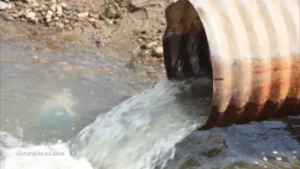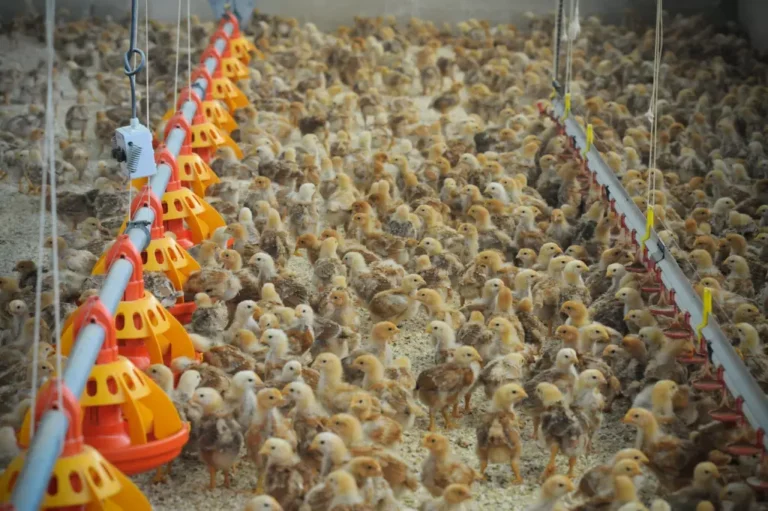
Landmark Ruling After 18 Years Puts Poultry Industry on Losing End
Julie Marshall
National Communications Coordinator
Talk about persistence. And patience.
Eighteen years ago, Animal Wellness Action Co-Chair Drew Edmondson, then the attorney general for Oklahoma, initiated a $1.6 billion lawsuit in environmental damages and for massive water quality cleanup efforts, blaming poultry leader Tyson Foods among others for storing and disposing of thousands of tons of waste on land within the state’s precious Illinois River watershed.
Finally, on the 18th of January, a U.S. District Court judge ruled in favor of four of Edmondson’s claims.
It’s a remarkable ruling that has implications for factory farms as a whole.
“Factory farming certainly provides more chicken on the market at a lower price, but the question is whether that price is worth it,” he said.
“In the first place, factory farmed chicken does not taste like chicken, and it doesn’t smell like chicken either when cooking, and now we know that the environmental damage done by producing chickens in those quantities in concentrated locations bring massive environmental costs.”
The monetary part of the case was dismissed, but that part of the ruling could be appealed.
Oklahoma v. Tyson Foods was “seen not only for not having an end but for being one of the most prominent environmental cases ever tried,” said one court reporter.
In his Findings of Fact and Conclusions of Law report, Judge Gregory Frizzell wrote:
“The court concludes all defendants, by their conduct, have unreasonably interfered with the public’s right to the use and enjoyment of the waters of the IRW (Illinois River watershed) in Oklahoma.”
Further, the judge held that the state established that “a significant cause of the excess phosphorus in the waters of the IRW is the land application of litter (waste) from defendants’ poultry.”
This is a remarkable win, Edmondson says, because phosphorus and nitrate levels were damaging recreation waters at Illinois River and Tenkiller Lake, and the poultry companies, including several others in the suit in addition to Tyson, were responsible.
“There are a number of potential solutions including treatment of the waste and removal to other areas not saturated with phosphorous,” he added. “Most importantly, these remedies are the responsibilities of the companies.”
Judge Frizzell had initially warned that it could take at least 15 years for him to come down with a decision, and COVID-19 added further delays. Meanwhile, dumping waste from factory farms remains one of the most harmful causes around the world of human illness and toxic environments.
Edmondson believes that it took nearly two decades to finally get to this point “because of the complexity of the testimony covering everything from the chemistry to the geological makeup of the watershed.”
Regarding next steps, Edmondson said, “the court has given the parties an opportunity to propose solutions consistent with these findings, and if that is not successful, the court will enter its judgement and the parties will have the option of appealing.”
Breaking News
Domestic Violence with its Links to Animal Abuse is Affecting Our Children
By Michael Dougherty, Jenny McClintock and Alison Brand Guest Opinion, Boulder County...
Read MoreKeeping Bears Whole: Stopping Trade in Gallbladders and Bile to Crack Down on Global Poaching Rings
Julie Marshall National Communications Coordinator Animal Wellness Action, the Animal Wellness Foundation, Center...
Read MoreZero Tolerance for Race Horse Deaths, in Training and On the Track
Julie Marshall National Communications Coordinator In May following the death of seven...
Read MoreCracking Down on Cockfighting and Calling Out Enforcement Weaknesses
Julie Marshall National Communications Coordinator In May, Animal Wellness Action and its...
Read MoreKeeping the Pressure on Adidas, While Nike, Puma Halt Use of Kangaroos for Shoes
Julie Marshall National Communications Coordinator The Center for a Humane Economy in...
Read More“In the first place, factory farmed chicken does not taste like chicken, and it doesn’t smell like chicken either when cooking, and now we know that the environmental damage done by producing chickens in those quantities in concentrated locations bring massive environmental costs.”
— Animal Wellness Action Co-Chair Drew Edmondson
